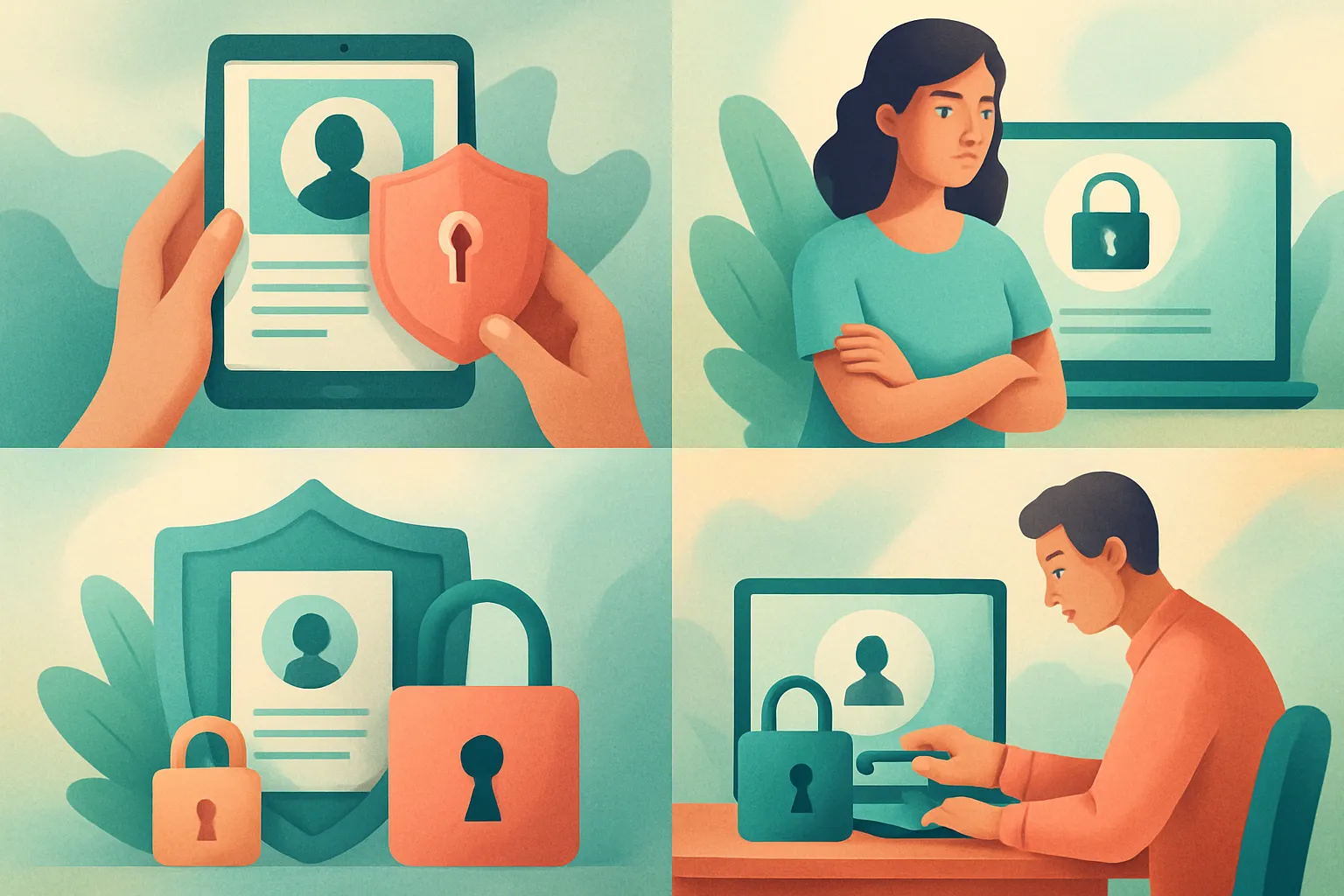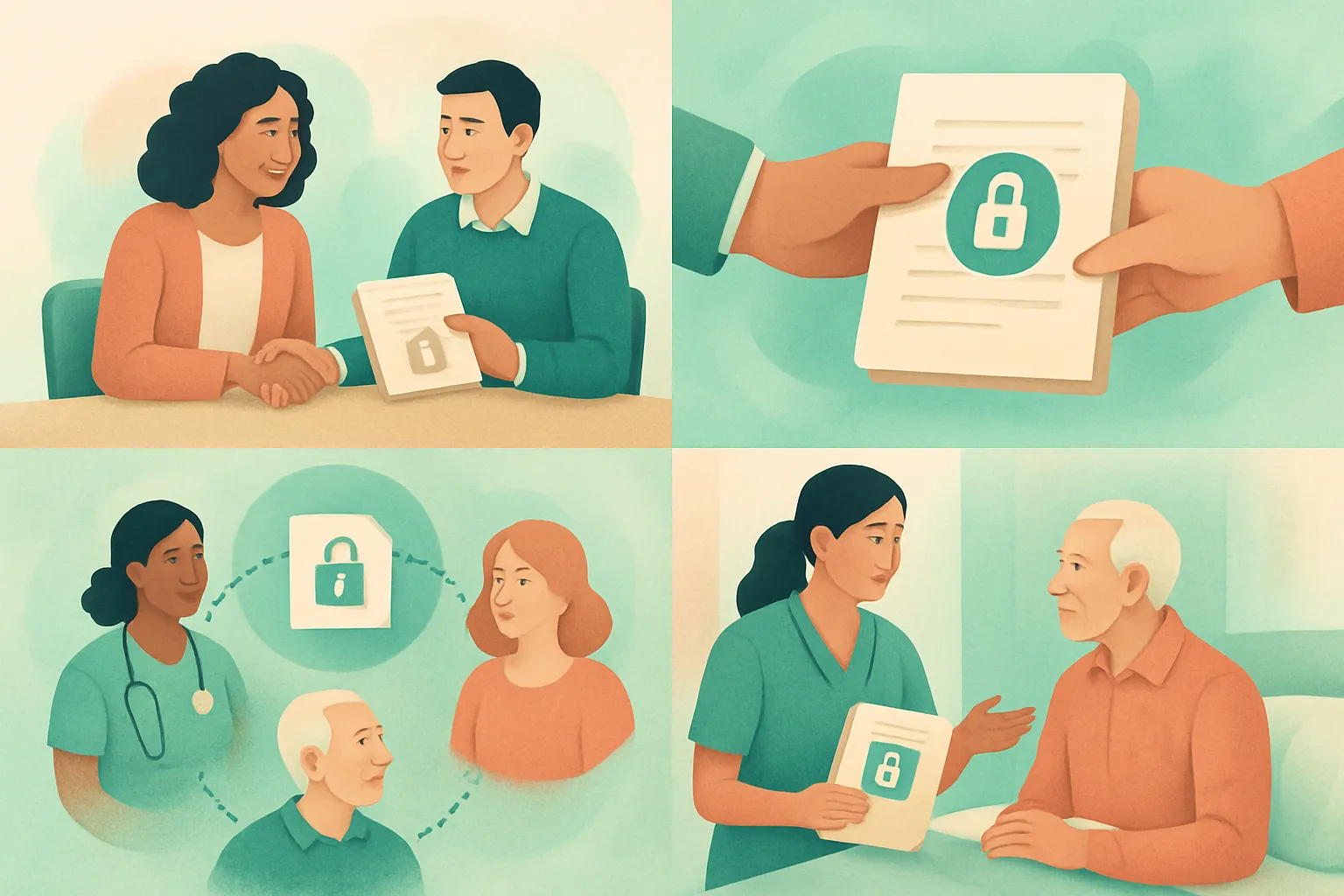Curriculum
- 15 Sections
- 15 Lessons
- 2 Weeks
- Understanding Your Role2
- Duty of Care2
- Equality and diversity2
- Person-centred care and empowerment2
- Communication2
- Privacy and dignity2
- Fluids and nutrition2
- Awareness of mental health, dementia and learning disabilities2
- Safeguarding adults2
- Safeguarding children2
- Basic life support2
- Health and safety2
- Handling information2
- Infection prevention and control2
- Understanding learning disabilities and autism2
Curriculum
Handling information
Learning Objective:
Understand how to manage information in health care settings, focusing on data protection, effective record keeping, and appropriate information sharing.
Protecting personal data

Personal data refers to any information that can identify an individual, including health records, personal identifiers, and more sensitive categories of data such as medical history and complaints. It’s crucial to handle this information with care within a health setting, not only as a legal requirement but to maintain the dignity and trust of those in your care. Key legislation like the Data Protection Act or GDPR guides these practices, ensuring data is shared only with authorized individuals. Protecting personal data aligns with core care values such as dignity, respect, and person-centred care, providing a foundation for ethical and quality service delivery. Failing to protect personal data may lead to breaches of trust or even harm, impacting the overall quality of care.
- Secure Storage Practices
- Strict Confidentiality Measures
- Proper Recording and Dissemination
- Regular Training
Ensure all personal data is secured in password-protected systems, with restricted access to only those who require it for care purposes.
Implement clear guidelines specifying who has the authorization to access and handle personal data.
Collect and share personal data only when it is necessary and ensure it’s done through secure channels to authorized recipients.
Always verify the necessity of sharing information, check records for accuracy, and confirm consent before data dissemination.
Effective record keeping

Effective record keeping in care settings is vital for maintaining accurate, clear, and confidential documentation. This process ensures that all the health and social care needs of individuals are systematically recorded and accessible to provide a continuity of care. Records must be complete, include exact details such as dates and times, and adhere to legal requirements emphasizing confidentiality and compliance with organizational policies. Types of records critical to effective care include incident reports, risk assessments, and daily care notes. These documents play a crucial role in protecting individuals’ safety, aiding in care quality improvements, and providing legal protection.
- Step 1: Listen and Calmly Receive Information
- Step 2: Record Details Clearly
- Step 3: Follow Reporting Channels
- Step 4: Review and Confirm Records
Listen carefully and without judgment when receiving complaints or additional information for records.
Ensure accuracy in documentation, including precise times, dates, and observations.
Report relevant information through proper channels such as notifying a manager or using designated organizational processes.
Double-check recorded information for completeness and confidentiality before finalizing.
Sharing information appropriately

Sharing information appropriately in healthcare environments requires balancing confidentiality with the need for cooperation in care. Appropriate information sharing is essential for the safety and person-centred care of individuals. Legal guidelines and organizational policies usually dictate when and how information should be shared, and obtaining consent is often necessary prior to sharing sensitive data. Potential conflicts can arise between maintaining privacy and ensuring proper care—for example, deciding when it’s appropriate to share information with family versus healthcare professionals. Incorporating values of dignity and respect is pivotal in all interactions regarding information exchange.